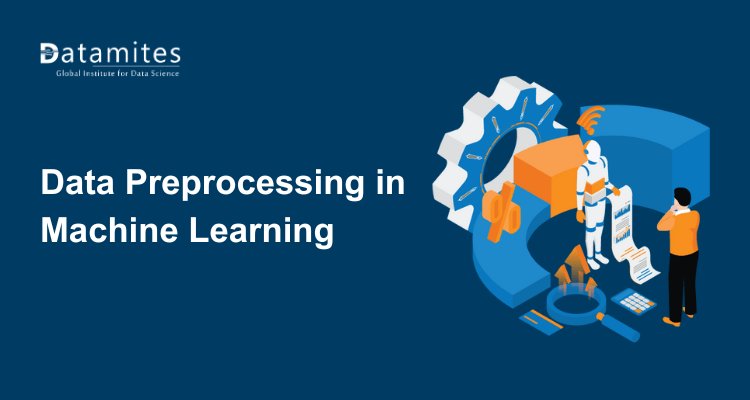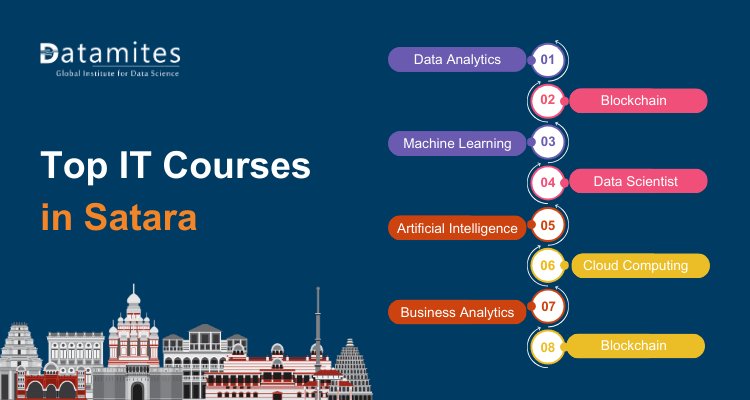Why Data Scientist Career in 2024

In 2024, data science stands as one of the most exhilarating and lucrative career paths. According to a recent report by the World Economic Forum, the demand for data scientists has surged by 35% over the past year alone. This explosive growth underscores the pivotal role data science plays across industries, making it an incredibly attractive career choice.
Data science isn’t just about crunching numbers; it's about harnessing the power of data to drive insights and innovation. This blog will delve into why data science remains a top career option, highlighting the current landscape, required skill sets, career opportunities, and how to get started in this dynamic field.
The Growing Demand for Data Scientists
The demand for data scientists has surged due to the growing reliance on data-driven decision-making. According to the U.S. Bureau of Labor Statistics, data science jobs are expected to see a 36% increase between 2021 and 2031, a growth rate much higher than most other fields. This surge in demand is primarily fueled by key sectors such as technology, finance, and healthcare.
Companies like Google and Amazon use data science to enhance user experiences and optimize algorithms, while financial institutions such as JPMorgan Chase apply it for fraud detection and risk management. Healthcare providers like Pfizer leverage data science to accelerate drug discovery and personalize patient care. These examples underscore the broad applications and importance of data science.
Netflix's content recommendations boost user engagement, and Walmart uses analytics to streamline supply chain management and improve inventory efficiency. These applications demonstrate how data science enhances operational efficiency and creates competitive advantages. As more organizations recognize the value of data, the role of data scientists is becoming increasingly crucial.
Read these articles:
- Basic Data Cleaning and Preprocessing Techniques
- The Role of Statistics in Data Science
- Power BI vs. Tableau for Data Science
Skill Set Required in Data Science
Data science is a rapidly evolving field that requires a mix of technical skills, domain knowledge, and continuous learning. Here’s a breakdown of key skills and educational opportunities for someone looking to enter or advance in data science:
Programming Skills:
- Skilled in programming languages including Python and R.
- Knowledge of SQL for database management.
Statistical Analysis:
- Understanding of statistical methods and their application in data analysis.
- Ability to interpret and validate results.
Machine Learning:
- Familiarity with algorithms like regression, classification, clustering, and deep learning.
- Skilled in leveraging frameworks and libraries such as TensorFlow, Keras, and Scikit-learn.
Data Manipulation and Cleaning:
- Skills in handling and preprocessing data using tools like pandas and NumPy.
- Ability to identify and address problems concerning data quality.
Data Visualization:
- Proficiency in creating visualizations using tools such as Matplotlib, Seaborn, and Tableau.
- Ability to effectively communicate findings through charts and graphs.
Big Data Technologies:
- Familiarity with technologies and frameworks like Hadoop, Spark, and Hive.
- Understanding of distributed computing and data storage.
Domain Knowledge:
- An exploration into the particular industry or domain where data science is utilized.
- The skill to transform business challenges into solutions guided by data insights.
Soft Skills:
- Strong problem-solving abilities and critical thinking.
- Skills for effectively conveying data insights and working collaboratively with teams.
Career Paths and Salaries in Data Science
Data science is a dynamic and expanding domain, offering a wide range of career possibilities. Here’s a look at some typical roles and career trajectories within this field:
Data Scientist: A Data Scientist analyzes and interprets complex data to help companies make informed decisions, utilizing skills in model building, statistical analysis, and machine learning techniques. To prepare for this role, a data science course can offer foundational knowledge. According to Glassdoor, the typical annual salary for a Data Scientist in India is ₹13,60,000. In the United States, it averages $1,59,013 per year, while in the United Arab Emirates, the monthly pay is around AED 21,667.
Data Analyst: A Data Analyst interprets data to provide actionable insights, often utilizing tools such as Excel, SQL, and visualization software. In India, the average annual salary for a Data Analyst is ₹7,38,000, while in the United States, it is approximately $1,08,525 per year. In the United Arab Emirates, the average monthly salary for this role is AED 10,833. (Source: Glassdoor)
Data Engineer: A Data Engineer is responsible for designing and maintaining the infrastructure required for data generation, storage, and analysis, involving work with databases, data warehouses, and big data technologies. The average salary for a Data Engineer varies by location: in India, it is approximately ₹9,50,000 per year; in the United States, it is about $1,31,774 per year; and in the United Arab Emirates, it averages AED 20,500 per month (Source: Glassdoor).
Machine Learning Engineer: A Machine Learning Engineer specializes in designing and implementing machine learning models and algorithms, working closely with data scientists to deploy these models into production environments. The average salary for this role varies by location: in India, it is approximately ₹11,24,000 per year; in the United States, it averages $1,65,221 per year; and in the United Arab Emirates, it is about AED 13,750 per month (Source: Glassdoor).
Business Intelligence (BI) Analyst/Developer: A Business Intelligence Developer utilizes data analysis and visualization tools to enhance business decision-making processes, frequently involving the creation of dashboards, reports, and data visualizations. In India, the average annual salary for this role is ₹6,95,000, while in the United States, it is approximately $1,23,114 per year. In Dubai, UAE, a Business Intelligence Analyst typically earns around AED 12,000 per month. (Source: Glassdoor)
Statistician: Statisticians apply statistical methods and techniques to analyze data and solve problems, frequently involving hypothesis testing, regression analysis, and experimental design. In India, the average salary for a statistician is ₹4,48,000 per year, according to Glassdoor. In the United States, the average salary for this role is significantly higher at $1,23,349 per year, also reported by Glassdoor. Meanwhile, in the United Arab Emirates, the average annual pay for a statistician is AED 333,424, as noted by the Economic Research Institute.
Quantitative Analyst (Quant): A Quantitative Analyst, who specializes in developing models and algorithms to analyze financial data and guide trading strategies, has varying average salaries depending on the region. In Dubai, the typical monthly earnings for this position amount to AED 20,796. In India, the average annual salary is ₹18,50,000, while in the United States, it is approximately $2,53,398 per year (Source: Glassdoor).
Data Consultant: A Data Consultant plays a crucial role in helping organizations leverage data effectively by assessing their data needs, developing strategic plans, and implementing solutions. In India, the average annual salary for a Data Consultant is ₹10,50,005. In the United States, the average salary is $1,15,649 per year, while in the United Arab Emirates, it is approximately AED 18,311 per month. (Source: Glassdoor)
Each of these roles requires a different set of skills and expertise, so it’s important to understand what interests you most and consider enrolling in a data science training course to align your career development accordingly.
Refer these articles:
- What is Certified Data Scientist Course
- What is Datamites Certified Data Analyst Certification
- What Is AI Engineer Course
Why Data Science Is a Future-Proof Career
Data science is often considered a future-proof career for several compelling reasons:
Expanding Data Volume: The amount of data being generated globally continues to grow exponentially. Organizations across industries need data scientists to analyze and interpret this data to make informed decisions.
Diverse Applications: Data science has applications in numerous fields, including healthcare, finance, marketing, technology, and more. This versatility means that data scientists can find opportunities in a wide range of industries.
Decision-Making Support: Businesses increasingly rely on data-driven insights to guide their strategies and operations. Data scientists play a crucial role in providing these insights, making their skills highly valuable.
Technological Advancements: As technology evolves, so do the tools and techniques used in data science. This continuous advancement ensures that data science remains relevant and in demand.
Integration with AI and Machine Learning: Data science is closely tied to artificial intelligence (AI) and machine learning (ML). As these fields advance, the need for data scientists who can develop and implement AI and ML models will continue to grow.
Personalized Experiences: Data science enables the creation of personalized experiences for users, whether in e-commerce, content recommendations, or healthcare. This focus on personalization drives demand for data expertise.
Problem-Solving Skills: Data scientists are skilled problem solvers, capable of tackling complex challenges through data analysis. This ability is highly sought after in an ever-changing world.
Economic Growth: Data science has been a key driver of economic growth and innovation. As economies become more data-driven, the role of data scientists in fostering growth and innovation will remain crucial.
In summary, the combination of growing data, diverse applications, technological advancements, and the increasing reliance on data-driven decision-making makes data science a robust and future-proof career choice.
Read these articles:
- Data Science Course Fee in Pune
- Data Science Course Fee in Hyderabad
- Data Science Course Fee in Bangalore
How to Get Started in Data Science in 2024
Getting started in data science in 2024 involves a mix of foundational knowledge, practical skills, and staying updated with current trends. Here's a detailed roadmap to kick things off:
1. Understand the Basics
- Mathematics and Statistics: Focus on key concepts like probability, linear algebra, and statistics. These are crucial for data analysis and machine learning.
- Programming: Learn programming languages commonly used in data science, such as Python and R. Python enjoys widespread popularity thanks to its vast array of libraries and strong community backing.
2. Acquire Core Skills
- Data Manipulation and Analysis: Get comfortable with libraries and tools like Pandas, NumPy, and SQL for data manipulation and analysis.
- Data Visualization: Learn to use visualization tools and libraries such as Matplotlib, Seaborn, and Tableau to create insightful visualizations.
- Machine Learning: Grasp the fundamental concepts and methods of machine learning algorithms and techniques. Libraries like Scikit-learn and TensorFlow can help you get started.
3. Educational Resources
- Online Courses: Online courses can be a fantastic way to learn new skills or deepen your knowledge in data science through specialized data science training programs.
- Books and Tutorials: Books like "Python for Data Analysis" by Wes McKinney and "Hands-On Machine Learning with Scikit-Learn, Keras, and TensorFlow" by Aurélien Géron are great resources.
4. Build Practical Experience
- Projects: Dive into personal projects or get involved with open-source initiatives. Practical experience is invaluable.
- Competitions: Participate in data science competitions on platforms like Kaggle or DrivenData to test your skills and learn from others.
5. Get Familiar with Tools and Technologies
- Integrated Development Environments (IDEs): Popular tools include Jupyter Notebook, PyCharm, and RStudio.
- Data Storage: Understand how to work with databases (SQL) and data formats (CSV, JSON, etc.).
- Cloud Platforms: Familiarize yourself with cloud services such as AWS, Google Cloud, or Azure, which offer data storage and machine learning services.
6. Network and Stay Updated
- Communities and Forums: Join data science communities on LinkedIn, Reddit, and specialized forums. Connecting with industry professionals can offer invaluable insights and open doors to new opportunities.
- Conferences and Meetups: Attend conferences, webinars, and meetups to stay updated on the latest trends and technologies in data science.
7. Build a Portfolio
- Showcase Your Work: Create a portfolio to showcase your projects, skills, and experience. Platforms like GitHub or personal websites are ideal for this.
In 2024, data science continues to be a highly promising career choice, thanks to its growing demand, diverse opportunities, and future-proof nature. By starting with a data science course and gaining practical experience, you can embark on a rewarding career in this dynamic field. Take the first step today and shape your future with data science!
Welcome to DataMites Institute, where we are committed to shaping the future of data science professionals. Our premier offering, the Certified Data Scientist course, is meticulously designed to provide you with the essential skills and expertise required for success in the data science field. Accredited by IABAC and NASSCOM FutureSkills, our course guarantees a high-quality education that is recognized and valued by industry leaders.
In addition to the Certified Data Scientist course, DataMites offers a diverse range of specialized programs, including Data Science for Managers, Data Science in HR, Data Science in Marketing, and Python for Data Science. Each course is designed to cater to different aspects of data science, allowing you to tailor your learning experience to your career goals.
In 2024, a career in data science is more promising than ever. With organizations increasingly relying on data-driven insights, the demand for skilled data scientists is soaring. Join DataMites and be at the forefront of this dynamic field.





